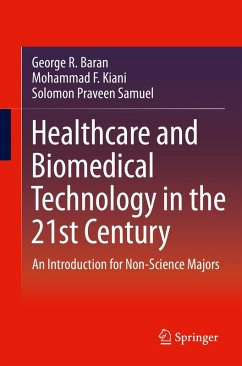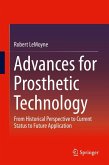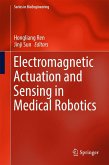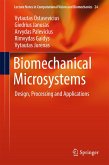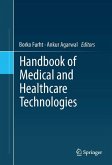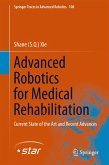This textbook introduces students not pursuing degrees in science or engineering to the remarkable new applications of technology now available to physicians and their patients and discusses how these technologies are evolving to permit new treatments and procedures. The book also elucidates the societal and ethical impacts of advances in medical technology, such as extending life and end of life decisions, the role of genetic testing, confidentiality, costs of health care delivery, scrutiny of scientific claims, and provides background on the engineering approach in healthcare and the scientific method as a guiding principle. This concise, highly relevant text enables faculty to offer a substantive course for students from non-scientific backgrounds that will empower them to make more informed decisions about their healthcare by significantly enhancing their understanding of these technological advancements.
This book also:
· Presents scientific concepts from modern medical science using relevant, high-profile, and widely publicized break-through technologies
· Presents a case-history approach involving hypothetical medical scenarios to illustrate several treatments, progressing from less- to more-technologically involved
· Offers coverage of the scientific method and details of the engineering approach in medicine
· Discusses common and esoteric medical interventions, drawing on students' and their families' life experiences to foster an understanding and appreciation of the engineering and technologic contributions to healthcare
· Covers diagnostic medical imaging, synthetic and bio-materials, implant design, cardiac care devices, genetic testing, controlled and targeted drug delivery, the impact of nanotechnology, and the future of medical care as it is shaped by new technologies
· Includes many exercises, an instructor's solutions manual, and 75 illustrations
This book also:
· Presents scientific concepts from modern medical science using relevant, high-profile, and widely publicized break-through technologies
· Presents a case-history approach involving hypothetical medical scenarios to illustrate several treatments, progressing from less- to more-technologically involved
· Offers coverage of the scientific method and details of the engineering approach in medicine
· Discusses common and esoteric medical interventions, drawing on students' and their families' life experiences to foster an understanding and appreciation of the engineering and technologic contributions to healthcare
· Covers diagnostic medical imaging, synthetic and bio-materials, implant design, cardiac care devices, genetic testing, controlled and targeted drug delivery, the impact of nanotechnology, and the future of medical care as it is shaped by new technologies
· Includes many exercises, an instructor's solutions manual, and 75 illustrations
Dieser Download kann aus rechtlichen Gründen nur mit Rechnungsadresse in A, B, BG, CY, CZ, D, DK, EW, E, FIN, F, GR, HR, H, IRL, I, LT, L, LR, M, NL, PL, P, R, S, SLO, SK ausgeliefert werden.
"Book about modern developments in health care and biomedical technology, and numerous healthcare dilemmas relevant for the public today. It introduces the reader to a huge range of treatment options available to him or her, explains how they work, and discusses the ethical and political implications of these technologies. ... Healthcare and Biomedical Technology in the 21st Century is a highly informative book that, if used wisely in undergraduate education, can most certainly help promote students' scientific and health literacy." (Rebecca B. Carver, Science and Education, Vol. 25, 2016)

